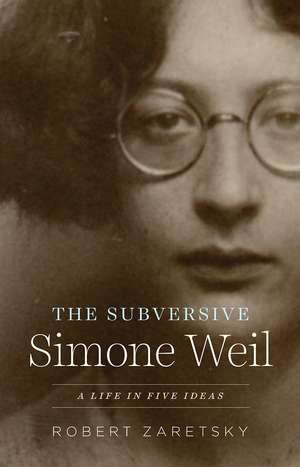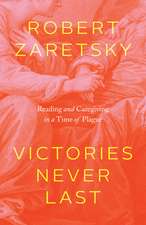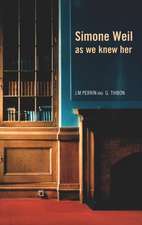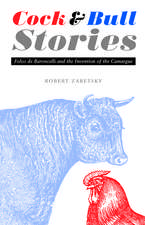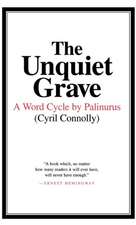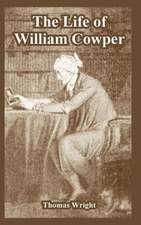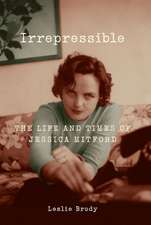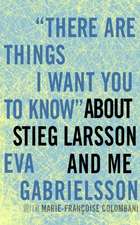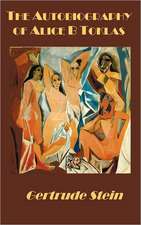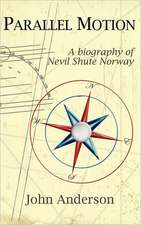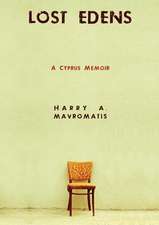The Subversive Simone Weil: A Life in Five Ideas
Autor Robert Zaretskyen Limba Engleză Hardback – 23 feb 2021
Though Weil published little during her life, after her death, thanks largely to the efforts of Albert Camus, hundreds of pages of her manuscripts were published to critical and popular acclaim. While many seekers have been attracted to Weil’s religious thought, Robert Zaretsky gives us a different Weil, exploring her insights into politics and ethics, and showing us a new side of Weil that balances her contradictions—the rigorous rationalist who also had her own brand of Catholic mysticism; the revolutionary with a soft spot for anarchism yet who believed in the hierarchy of labor; and the humanitarian who emphasized human needs and obligations over human rights. Reflecting on the relationship between thought and action in Weil’s life, The Subversive Simone Weil honors the complexity of Weil’s thought and speaks to why it matters and continues to fascinate readers today.
| Toate formatele și edițiile | Preț | Express |
|---|---|---|
| Paperback (1) | 78.77 lei 3-5 săpt. | +11.40 lei 4-10 zile |
| University of Chicago Press – 5 apr 2023 | 78.77 lei 3-5 săpt. | +11.40 lei 4-10 zile |
| Hardback (1) | 147.20 lei 3-5 săpt. | +14.66 lei 4-10 zile |
| University of Chicago Press – 23 feb 2021 | 147.20 lei 3-5 săpt. | +14.66 lei 4-10 zile |
Preț: 147.20 lei
Nou
Puncte Express: 221
Preț estimativ în valută:
28.18€ • 30.62$ • 23.68£
28.18€ • 30.62$ • 23.68£
Carte disponibilă
Livrare economică 31 martie-14 aprilie
Livrare express 14-20 martie pentru 24.65 lei
Preluare comenzi: 021 569.72.76
Specificații
ISBN-13: 9780226549330
ISBN-10: 022654933X
Pagini: 200
Dimensiuni: 140 x 216 x 28 mm
Greutate: 0.38 kg
Ediția:First Edition
Editura: University of Chicago Press
Colecția University of Chicago Press
ISBN-10: 022654933X
Pagini: 200
Dimensiuni: 140 x 216 x 28 mm
Greutate: 0.38 kg
Ediția:First Edition
Editura: University of Chicago Press
Colecția University of Chicago Press
Notă biografică
Robert Zaretsky is the author of Boswell’s Enlightenment; A Life Worth Living: Albert Camus and the Quest for Meaning; and Catherine & Diderot: The Empress, the Philosopher, and the Fate of the Enlightenment, among other books. A frequent contributor to the New York Times, the Washington Post, Foreign Affairs, the Times Literary Supplement, the Los Angeles Review of Books, and the Chronicle of Higher Education, he lives in Houston with his wife, children, and assorted pets.
Extras
It has become a ritual among Weil biographers to sum up her life with a series of contradictions. An anarchist who espoused conservative ideals, a pacifist who fought in the Spanish Civil War, a saint who refused baptism, a mystic who was a labor militant, a French Jew who was buried in the Catholic section of an English cemetery, a teacher who dismissed the importance of solving a problem, the most willful of individuals who advocated the extinction of the self: here are but a few of the paradoxes Weil embodied. It helps to see these instances less as inconsistencies in Weil’s work and life— though, at times, they are precisely this—than as invitations to reflect on both one and the other. In her notebooks, she wrote that the “proper method of philosophy consists in clearly conceiving the insoluble problems in all their insolubility and then in simply contemplating them, fixedly and tirelessly, year after year, without any hope, patiently waiting.”
By this measure, Weil concluded, “there are few philosophers. And one can hardly even say a few.” Not surprisingly, Weil held an exacting view of the philosopher’s mandate. It is, she declared, “exclusively an affair of action and practice.” This was the reason, she thought, why it was so difficult to write about philosophy—it was, she suggested, like writing a “treatise on tennis or running”—but it is also the reason why contradictions score Weil’s life. They reveal the inevitable tensions in a life that placed so great a premium on aligning ideals and practice, an effort that had to fall short sooner or later. But Weil’s effort to straddle these contradictions, as well as the nature of the ideals that inspired her action, demand our attention. She was, in fact, no less singular in her insistence on accepting the consequences of a given truth than she was in her insistence on matching her ideals with her acts. As her students often heard her declare, Weil could not stand compromise, whether it was with her own self or with others. In turn, we cannot stand for very long in her severe company without feeling deeply discomforted. This is as it should be. To a degree rare in the modern age—or, indeed, any age—Simone Weil fully inhabited her philosophy.
To echo the fictitious coroner’s report on the death of the Jesuit priest in Albert Camus’s novel The Plague, Weil’s end remains a “questionable case.” For Weil, death was neither the means nor the end to philosophy. Instead, it was a possible consequence of doing philosophy—at least if we understand philosophy not as an academic discipline, but as a way of life. As the contemporary philosopher Costica Bradatan has observed, “Philosophizing is not about thinking, speaking or about writing . . . but about something else: putting your body on the line.”
As with Socrates and Seneca, Benedict Spinoza and Jan Patocka, Weil obliges us to recall not just the price of the philosophical life, but its purpose. Few of us, I know, can ask this of ourselves. As Stanley Cavell wrote, Weil was exceptional in her refusal to be “deflected” from the reality of life. And yet this inability to be deflected is a gift, or curse, that most of us would gladly refuse. This is how it is—perhaps even as it should be.
This book explores five core concepts in Weil’s thought. While I detail several episodes in Weil’s life, I do not treat chronology as consistently as the historian in me would have liked. And so, allow me to trace in the next few pages the arc of her life.
Born in Paris in 1909, five years before the outbreak of World War I, Weil was the child of Bernard and Salomea (Selma) Weil. The well-to-do parents were fiercely nonobservant Jews who prized the city’s cultural and literary life. Born in Russia to a prosperous family of merchants, Salomea Reinherz— who shortened her first name to Selma—left for Belgium, then France with her parents following a rash of pogroms in 1882. Her family bristled with poets and musicians, and Selma was herself an accomplished pianist and singer. Bernard Weil was the child of a successful business family from Strasbourg that chose French citizenship when Germany annexed Alsace at the end of the Franco-Prussian War in 1871. Though his parents were practicing Jews, Bernard gravitated to anarchism and atheism as a young man. Although he never surrendered his atheism, he did put aside his anarchist sympathies upon becoming a successful doctor. One year after the couple’s marriage in 1905, their son André was born; three years later, Simone followed. Shortly after his daughter’s birth, Bernard moved his family into an imposing apartment on the chic Boulevard Saint Michel, where he and Selma provided their children with love and attention, as well as the aspirations and advantages expected of the haute bourgeoisie in Belle Époque France.
As a child, Weil both channeled and challenged her parents’ values. She and André participated in discussions about music and literature during family meals, where they would speak in German and English as well as French. Before she had learned to read, she would memorize poems she learned from her mother, then recite them for dinner guests. When she was five, she and her brother were reading and performing passages from Edmond Rostand’s play Cyrano de Bergerac. Her melodramatic performance, Madame Weil reported, reduced the family to tears of laughter. The parents found other performances by their children less amusing, however. One day, for example, the siblings went door to door, begging their startled neighbors for food. The reason, they explained, was that their parents had left them to starve.
Weil’s rebellious streak came to the fore early and never faded. During the war, she sent her own share of sugar and chocolate to the poilus, the French soldiers fighting at the front. A few years later, the ten-year-old Weil slipped out of her family’s spacious apartment to join striking workers who, chanting The Internationale, were marching along the Boulevard Saint Michel below. Not surprisingly, when she learned of the pittance paid to the workers at the summer resort where she and her family were staying, Weil tried to persuade them to form a union. In grade school, when a classmate denounced her as a communist, the child superbly replied, “Pas du tout! I am a Bolshevik.”
While Weil threw herself into the world of politics, her older brother was exploring the world of mathematics. André Weil soon revealed himself as a mathematical prodigy, with his sister comparing him, not unreasonably, to seventeenth-century thinker Blaise Pascal. In a letter she wrote several years later, she confessed that her brother’s genius was a source of both marvel and misery for her. In comparing her prospects to André’s, Weil’s spirit buckled and nearly broke. “At fourteen,” she confessed, “I fell into one of those fits of bottomless despair that come with adolescence, and I seriously thought of dying because of the mediocrity of my natural faculties . . . I did not mind having no visible successes, but what did grieve me was the idea of being excluded from that transcendent kingdom to which only the truly great have access and wherein truth abides. I preferred to die rather than live without that truth.”
This search for truth was the winch that raised Weil from this sink of despair and, though not without halts and shudders, kept her above it until her death two decades later. It held fast during her years at the prestigious Lycée Henri IV, followed by admission into the nation’s most celebrated school of higher learning: the École Normale Supérieure (ENS). Weil’s classmates, who were variously awed or annoyed by her Kantian severity, called her the “Categorical Imperative in skirts.” The school’s director, Célestin Bouglé, no doubt had harsher labels in private for Weil. Driven to distraction by this brilliant student who tried to organize protests against the military draft, and whose drab coat pockets bristled with rolled copies of the anarchist La Révolution prolétarienne and satirical Le Canard enchaîné, Bouglé dubbed her “the red virgin.” Upon graduation, Weil was assigned a teaching position in Le Puy, a small city buried in the distant region of Auvergne. Bouglé perhaps had the hope he would never again hear from or about her. But Weil had the last word. Soon after the school year began, Bouglé received a postcard featuring a photo of the immense bronze statue of the Virgin Mary standing on the cliff that overlooks Le Puy. There was no need for Weil to sign the card: under the photo was the caption: “The Red Virgin of Le Puy.”
By this measure, Weil concluded, “there are few philosophers. And one can hardly even say a few.” Not surprisingly, Weil held an exacting view of the philosopher’s mandate. It is, she declared, “exclusively an affair of action and practice.” This was the reason, she thought, why it was so difficult to write about philosophy—it was, she suggested, like writing a “treatise on tennis or running”—but it is also the reason why contradictions score Weil’s life. They reveal the inevitable tensions in a life that placed so great a premium on aligning ideals and practice, an effort that had to fall short sooner or later. But Weil’s effort to straddle these contradictions, as well as the nature of the ideals that inspired her action, demand our attention. She was, in fact, no less singular in her insistence on accepting the consequences of a given truth than she was in her insistence on matching her ideals with her acts. As her students often heard her declare, Weil could not stand compromise, whether it was with her own self or with others. In turn, we cannot stand for very long in her severe company without feeling deeply discomforted. This is as it should be. To a degree rare in the modern age—or, indeed, any age—Simone Weil fully inhabited her philosophy.
To echo the fictitious coroner’s report on the death of the Jesuit priest in Albert Camus’s novel The Plague, Weil’s end remains a “questionable case.” For Weil, death was neither the means nor the end to philosophy. Instead, it was a possible consequence of doing philosophy—at least if we understand philosophy not as an academic discipline, but as a way of life. As the contemporary philosopher Costica Bradatan has observed, “Philosophizing is not about thinking, speaking or about writing . . . but about something else: putting your body on the line.”
As with Socrates and Seneca, Benedict Spinoza and Jan Patocka, Weil obliges us to recall not just the price of the philosophical life, but its purpose. Few of us, I know, can ask this of ourselves. As Stanley Cavell wrote, Weil was exceptional in her refusal to be “deflected” from the reality of life. And yet this inability to be deflected is a gift, or curse, that most of us would gladly refuse. This is how it is—perhaps even as it should be.
This book explores five core concepts in Weil’s thought. While I detail several episodes in Weil’s life, I do not treat chronology as consistently as the historian in me would have liked. And so, allow me to trace in the next few pages the arc of her life.
Born in Paris in 1909, five years before the outbreak of World War I, Weil was the child of Bernard and Salomea (Selma) Weil. The well-to-do parents were fiercely nonobservant Jews who prized the city’s cultural and literary life. Born in Russia to a prosperous family of merchants, Salomea Reinherz— who shortened her first name to Selma—left for Belgium, then France with her parents following a rash of pogroms in 1882. Her family bristled with poets and musicians, and Selma was herself an accomplished pianist and singer. Bernard Weil was the child of a successful business family from Strasbourg that chose French citizenship when Germany annexed Alsace at the end of the Franco-Prussian War in 1871. Though his parents were practicing Jews, Bernard gravitated to anarchism and atheism as a young man. Although he never surrendered his atheism, he did put aside his anarchist sympathies upon becoming a successful doctor. One year after the couple’s marriage in 1905, their son André was born; three years later, Simone followed. Shortly after his daughter’s birth, Bernard moved his family into an imposing apartment on the chic Boulevard Saint Michel, where he and Selma provided their children with love and attention, as well as the aspirations and advantages expected of the haute bourgeoisie in Belle Époque France.
As a child, Weil both channeled and challenged her parents’ values. She and André participated in discussions about music and literature during family meals, where they would speak in German and English as well as French. Before she had learned to read, she would memorize poems she learned from her mother, then recite them for dinner guests. When she was five, she and her brother were reading and performing passages from Edmond Rostand’s play Cyrano de Bergerac. Her melodramatic performance, Madame Weil reported, reduced the family to tears of laughter. The parents found other performances by their children less amusing, however. One day, for example, the siblings went door to door, begging their startled neighbors for food. The reason, they explained, was that their parents had left them to starve.
Weil’s rebellious streak came to the fore early and never faded. During the war, she sent her own share of sugar and chocolate to the poilus, the French soldiers fighting at the front. A few years later, the ten-year-old Weil slipped out of her family’s spacious apartment to join striking workers who, chanting The Internationale, were marching along the Boulevard Saint Michel below. Not surprisingly, when she learned of the pittance paid to the workers at the summer resort where she and her family were staying, Weil tried to persuade them to form a union. In grade school, when a classmate denounced her as a communist, the child superbly replied, “Pas du tout! I am a Bolshevik.”
While Weil threw herself into the world of politics, her older brother was exploring the world of mathematics. André Weil soon revealed himself as a mathematical prodigy, with his sister comparing him, not unreasonably, to seventeenth-century thinker Blaise Pascal. In a letter she wrote several years later, she confessed that her brother’s genius was a source of both marvel and misery for her. In comparing her prospects to André’s, Weil’s spirit buckled and nearly broke. “At fourteen,” she confessed, “I fell into one of those fits of bottomless despair that come with adolescence, and I seriously thought of dying because of the mediocrity of my natural faculties . . . I did not mind having no visible successes, but what did grieve me was the idea of being excluded from that transcendent kingdom to which only the truly great have access and wherein truth abides. I preferred to die rather than live without that truth.”
This search for truth was the winch that raised Weil from this sink of despair and, though not without halts and shudders, kept her above it until her death two decades later. It held fast during her years at the prestigious Lycée Henri IV, followed by admission into the nation’s most celebrated school of higher learning: the École Normale Supérieure (ENS). Weil’s classmates, who were variously awed or annoyed by her Kantian severity, called her the “Categorical Imperative in skirts.” The school’s director, Célestin Bouglé, no doubt had harsher labels in private for Weil. Driven to distraction by this brilliant student who tried to organize protests against the military draft, and whose drab coat pockets bristled with rolled copies of the anarchist La Révolution prolétarienne and satirical Le Canard enchaîné, Bouglé dubbed her “the red virgin.” Upon graduation, Weil was assigned a teaching position in Le Puy, a small city buried in the distant region of Auvergne. Bouglé perhaps had the hope he would never again hear from or about her. But Weil had the last word. Soon after the school year began, Bouglé received a postcard featuring a photo of the immense bronze statue of the Virgin Mary standing on the cliff that overlooks Le Puy. There was no need for Weil to sign the card: under the photo was the caption: “The Red Virgin of Le Puy.”
Cuprins
Preface
Introduction
Chapter One The Force of Affliction
Chapter Two Paying Attention
Chapter Three The Varieties of Resistance
Chapter Four Finding Roots
Chapter Five The Good, the Bad, and the Godly
Epilogue
Acknowledgments
Notes
Index
Introduction
Chapter One The Force of Affliction
Chapter Two Paying Attention
Chapter Three The Varieties of Resistance
Chapter Four Finding Roots
Chapter Five The Good, the Bad, and the Godly
Epilogue
Acknowledgments
Notes
Index
Recenzii
“Robert Zaretsky’s The Subversive Simone Weil: A Life in Five Ideas elegantly captures its subject’s brief life and expansive thought in a schema that pays eloquent tribute to the continuing relevance of both.”
“[Zaretsky] is an admirably fluent and humble guide, who elucidates her writings; yet he doesn’t shy away from confessing that, at times, he’s baffled by her. Often she will make a claim that “compels as powerfully as it repels”, he notes. He grapples with Weil as she demands to be grappled with, not as a purely abstract thinker but as a singular voice demanding that we think and act with integrity.”
"After an introduction that contextualizes Weil’s short, unusual life, Zaretsky dedicates chapters—each written in an elegant, accessible prose—to five essential columns that brace her philosophy: affliction, attention, resistance, rootedness, and goodness."
"This biography of an exceptional 20th-century thinker traces her inspirational experiences and philosophy. Zaretsky unveils Weil’s depth and seeming contradictions (rationalism and mysticism, revolution and belief) to explain her lasting appeal to readers."
“Zaretsky guides us through Weil’s complexities with impressive lucidity, keeping it lively and accessible, which is no small feat.”
“In clear, accessible prose, Zaretsky gives some coherence to Weil’s largely fragmentary oeuvre. What emerges is a portrait of a politically unclassifiable thinker who in her life and writings committed herself to be open to the unbearable reality around her.”
"This memorable survey delivers a rich portrait of the intellectual currents that shaped a one-of-a-kind thinker. Those curious about Weil’s work will find this to be a welcome place to start."
“It is hard to see how a figure so marvelously intemperate could ever be bridled to the satisfaction of the Anglo-American mainstream. Still, the intellectual historian Robert Zaretsky has made an impressive attempt to win over skeptics in his new book, The Subversive Simone Weil: A Life in Five Ideas. Somewhere between biography and philosophical overview, Zaretsky’s study sorts Weil’s views into five central categories. Each of the corresponding chapters integrates discussion of her personal eccentricities with analyses, rehabilitations, and critiques of her thought. . . . Weil may be subversive, but The Subversive Simone Weil is balanced and accessible.”
“Simone Weil was merciless (not least on herself), sometimes alarming, always compelling, and unavoidably significant. This is a beautifully sharp and thoughtful account of her life and work—a fascinating read.”
"Zaretsky's work is unfailingly eloquent, fascinating, and relevant. In treating both her life and her writings, The Subversive Simone Weil displays a subject who, by going too far toward goodness, reminds so many of us that we have not gone far enough. In Zaretsky's hands, her courage stands as a complicated but necessary lesson for us all."
“Reading Zaretsky’s absorbing and tender intellectual portrait of Simone Weil, I was reminded on every page of her astonishing relevance to our own times. With her demanding vision of the life well lived, in her extreme judgments and through her punishing empathy, Weil emerges here as a figurehead for the intellectual and ethical challenges of the current moment. As he has done so beautifully in his books on Camus, Zaretsky has opened Weil’s life and work to our understanding. For readers familiar with Weil’s, The Subversive Simone Weil is a valuable synthesis; for those coming to her for the first time, an inspiring primer.”
"An unconventional introduction to the thought of Simone Weil: it is not a biography nor is it a straightforward exposition of her writings. Zaretsky is clearly enchanted by Weil’s philosophy and presents her ideas with clarity. But he also sees her faults, her impracticalities, and her contradictions. . . .Readers will come away with a basic understanding of Weil’s world view but not without wrestling with her ideas and their complications. Recommended."
